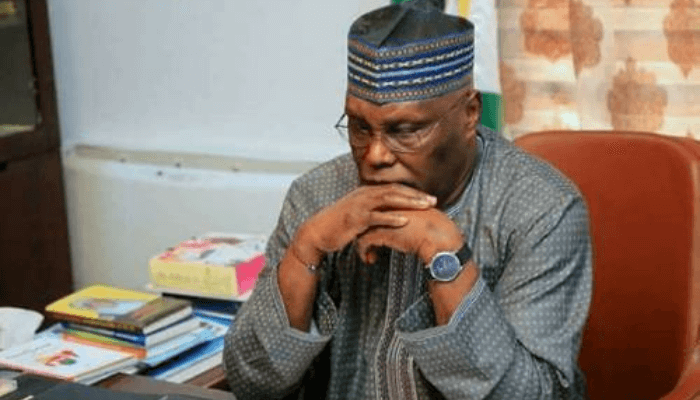Former Deputy National Publicity Secretary of the Peoples Democratic Party (PDP), Prince Diran Odeyemi, has attributed the ongoing political discord in Rivers State primarily to former Vice President Atiku Abubakar’s aspirations for the 2027 presidential election. In an interactive session organized by the League of Veteran Journalists in Osogbo, Odeyemi articulated that the rivalry between incumbent Governor Siminalayi Fubara and his predecessor, Nyesom Wike, is deeply intertwined with Atiku’s presidential ambitions. He asserted that this conflict poses a significant threat to the unity and stability of the PDP, emphasizing that Atiku’s intentions are not just personal but have broader implications for party cohesion and state governance.
Odeyemi strongly urged Atiku to reconsider his presidential ambitions for the betterment of the PDP, suggesting that he should formally declare his withdrawal from the race for the party’s 2027 presidential ticket. Complementing this call, he encouraged Wike, currently serving as the Minister of the Federal Capital Territory, to actively work towards rebuilding harmony within the party. Odeyemi argued that a clear commitment from both leaders, prioritizing peace and collaboration, is essential for the party to stabilize and regain its strength. He warned that without these pledges, the ongoing crisis that has polarized the party’s members is unlikely to abate and could lead to further divisions.
Highlighting the significance of leadership accountability, Odeyemi pointed out that it is essential for both Atiku and Wike to recognize their roles as influential figures within the party and the nation at large. He insisted that their acknowledgment of the necessity for peace is crucial for the PDP’s future direction. Odeyemi noted that as long as party members continue to rally behind either Atiku or Wike, the party will remain in a state of turmoil. This acknowledgment of factional loyalties was presented as a substantive barrier to reconciliation, framing the current conflict not just as a local issue but reflective of systemic challenges within the party at a national level.
The political tussle in Rivers State, according to Odeyemi, serves as a microcosm of the larger disunity within the PDP across Nigeria. He elaborated that factions supporting Fubara are predominantly aligned with Atiku, while those who are in opposition primarily support Wike. The implications of such divisions are profound, as they hinder collaborative efforts that are necessary for a robust political platform capable of mobilizing voters and addressing the needs of the populace. In Odeyemi’s perspective, resolving these factional disputes is essential not only for the party’s internal stability but also for its competitiveness in the upcoming elections.
Shifting focus to the administration in Osun State, Odeyemi praised Governor Ademola Adeleke’s leadership, highlighting tangible progress in various sectors within a short span of less than two years. He commended Adeleke for his adept management of state resources and efforts to minimize waste, suggesting that the administration’s focus on infrastructure and development will yield significant benefits in the years to come. His remarks reinforce a sense of optimism regarding Adeleke’s governance approach and indicate a contrasting narrative to the internal strife observed in Rivers State, suggesting that good governance can flourish even amid political challenges.
In conclusion, Odeyemi’s insights reflect a critical understanding of the interplay between personal ambitions and collective responsibility within political parties. By calling for Atiku and Wike to take decisive steps towards reconciliation, he advocates for a future where the PDP can unify its factions and work collaboratively towards common objectives. The road to peace and progress, according to Odeyemi, hinges on the leaders’ willingness to prioritize the party’s integrity and the needs of its constituency over individual political aspirations. Ultimately, the call for leadership accountability and commitment to unity resonates deeply within the context of Nigeria’s evolving political landscape, emphasizing that sustainable progress requires a cohesive and harmonious approach among its leaders.














